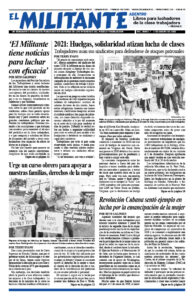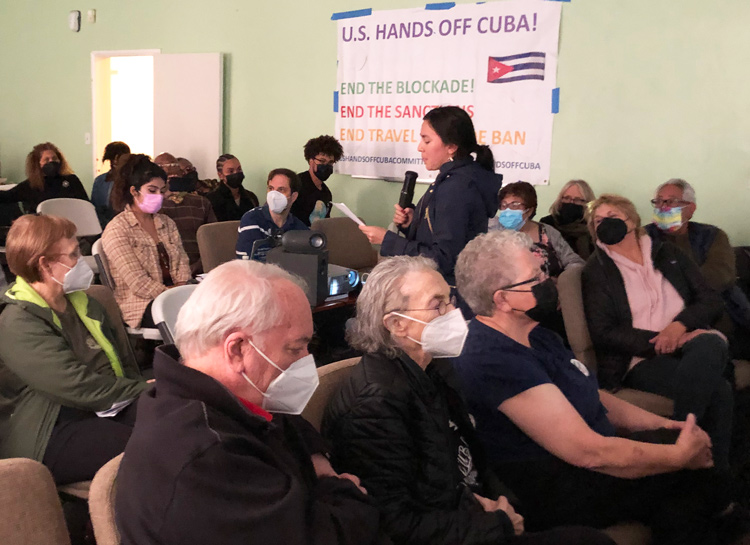LOS ANGELES — “We have medical brigades in more than 10 African countries, just one example of the Cuban Revolution’s solidarity with the peoples of Africa,” Alejandro García, of the Cuban Embassy in Washington, D.C., told a meeting here Dec. 12. “Cuba’s efforts have not only been to help with the independence and sovereignty of Africa, but to help with development.”
The meeting on Cuba’s legacy in Africa, attended by 55 people, was sponsored by the Los Angeles U.S. Hands Off Cuba Committee. Other speakers included Gail Walker, director of Pastors for Peace, and Nana Gyamfi, president of the National Conference of Black Lawyers. Greetings were given from Carlos Lazo of Puentes de Amor.
Mounting pressure against revolutionary Cuba from the Joseph Biden administration was shown when leaders of the African Methodist Episcopal Church where the event was to be held canceled it at the last minute. Organizers were able to secure another venue.
Several speakers and video clips noted the Cuban Revolution’s decisive role in the defeat of repeated military invasions of Angola by the U.S.-backed apartheid regime of South Africa. From 1975 to 1991 more than 375,000 Cuban volunteers fought alongside Angolan soldiers to beat back the invasions. The defeat of the apartheid forces helped lead to the victorious democratic revolution in South Africa led by Nelson Mandela and the African National Congress.
Cuba offers scholarships to African students who come to attend its Latin American School of Medicine, becoming doctors and nurses.
“Cuba has developed drugs to treat diabetics to prevent amputations,” Jennifer Alvarez, who visited the school outside Havana in 2020, told the meeting. She noted that because of the U.S. embargo of Cuba, these drugs cannot be brought into the U.S.
“Despite some of the toughest months and the decision by the Biden administration to keep in place the sanctions and the additional 243 measures introduced under Trump, the Cuban people, scientists, and the biotechnology industry have created five vaccines against COVID,” García said. “Now we have less than 100 new cases daily, and have had many days recently with zero deaths.”


